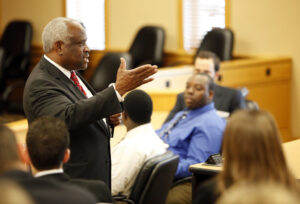(Column by my colleague Will Sutton, July 6)
The U.S. Supreme Court kept millions of Louisianans — and millions more across the nation — waiting for one of the most consequential decisions in recent election history.
I find myself in the strange position of agreeing with Justice Clarence Thomas, at least in part.
In an 8-1 decision, the high court decided not to decide Louisiana v. Callais and Robinson v. Callais, a couple of cases appealed to the Supreme Court based on challenges to the state’s Sixth Congressional District map. It’s the seat won by U.S. Rep. Cleo Fields with 50.8% of the vote in fall 2024. Some self-identified “non-Black” challengers to the district’s map argue that it was done with racial gerrymandering and is therefore unconstitutional.
With a single-paragraph, two-sentence decision, the court said:
“These cases are restored to the calendar for reargument. In due course, the Court will issue an order scheduling argument and specifying any additional questions to be addressed in supplemental briefing.”
If you’ve used the phrase “in due course,” you know what you mean is “You’ll get it when you get it.”
Thomas disagreed with that approach.
In a dissent much longer than the opinion, the justice said the court was wrong to delay a decision because it has “an obligation to resolve such challenges promptly.”
He’s got a point.

With no ruling from SCOTUS, all Louisiana congressional districts stay as they are, including Fields’ district, which runs through Lafayette, Baton Rouge and Shreveport. That bodes well for incumbent Fields getting another term.
It sure would’ve been nice to know in advance of next month’s 60th anniversary of the 1965 Voting Rights Act that this consequential act — powered to fruition by the Civil Rights Movement — will be protected, not damaged, pushed aside or thrown away.
Alas, we must wait, at least until the fall. Or maybe spring…. [The full column is at this link.]





